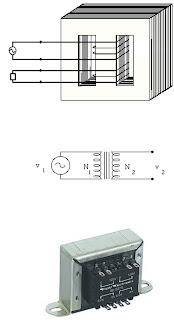No extra time for US particle lab

The hunt for the elusive Higgs boson particle - crucial to current theories of physics - looks set to become a one-horse race after 2011.
A US "particle smasher" has been denied an extension that would have kept it running until 2014.
The Tevatron accelerator will now end operations this year as was originally planned.
After that, Europe's Large Hadron Collider (LHC) will have a clear run at searching for the particle.
The Tevatron facility is operated by the Fermi National Accelerator Laboratory (Fermilab) which is in turn run by the US Department of Energy (DOE).
In October last year, an expert panel recommended extending the Tevatron's lifetime by three years, allowing physicists to continue using the accelerator in their hunt for the Higgs.
Fermilab employees have now been told that a difficult US budget situation means the panel's recommendation will not be followed, and the particle smasher will be closed this year.
But scientists are keen not to write off a Higgs discovery at the Tevatron, which will continue to gather data until September 2011.
Analysis of those measurements will continue long after September, and could yet exclude the Higgs over its allowed mass range, or find some hints of the sub-atomic particle.
CMS experiment at the LHC (Cern) The LHC is the only other rival in the race to detect the Higgs
The Higgs boson is of huge importance to the widely accepted theory of physics, known as the Standard Model.
It explains why other particles have mass, but, despite decades trying, no-one has yet detected it.
The LHC, which is based underground on the Franco-Swiss border near Geneva, is the only other competitor in the race to find the Higgs.
The Tevatron and the LHC alone are powerful enough to probe energy ranges where the Higgs may reside.
Some physicists have previously said the European machine may not be in a position to detect the Higgs for two to three years.
In 2010, physicists at Fermilab said they were closing in on the elusive particle.
Extending the Tevatron's lifetime beyond 2011 would have been a game-changer, giving the US lab a potential advantage in the race to make a discovery.
Cern, the organisation which runs the LHC, has for some time been planning to shut down the machine in late 2011 for up to one year.
But recently, officials had been considering whether to delay this scheduled closure - for maintenance work - until the end of 2012, giving the LHC more time to hunt for the elusive particle.
Fermilab would have needed an extra $35m per year to operate the Tevatron into 2014.


Comments
Post a Comment